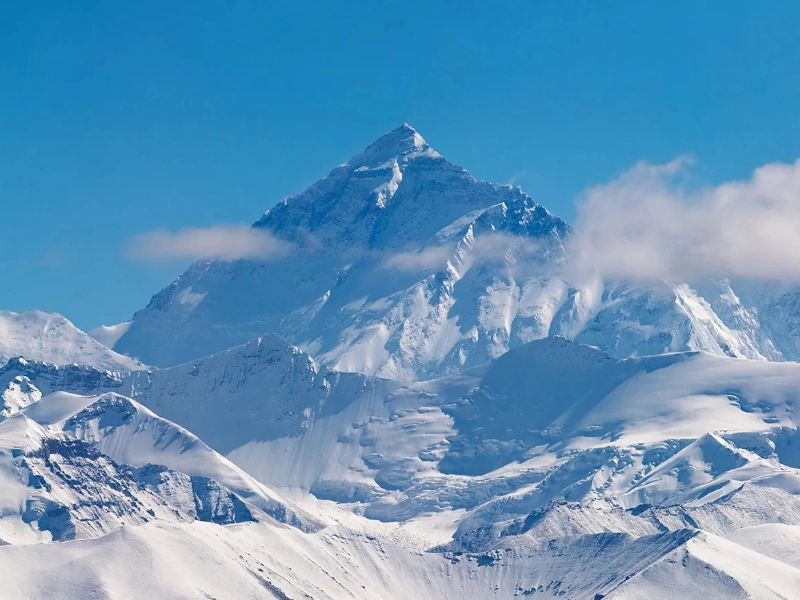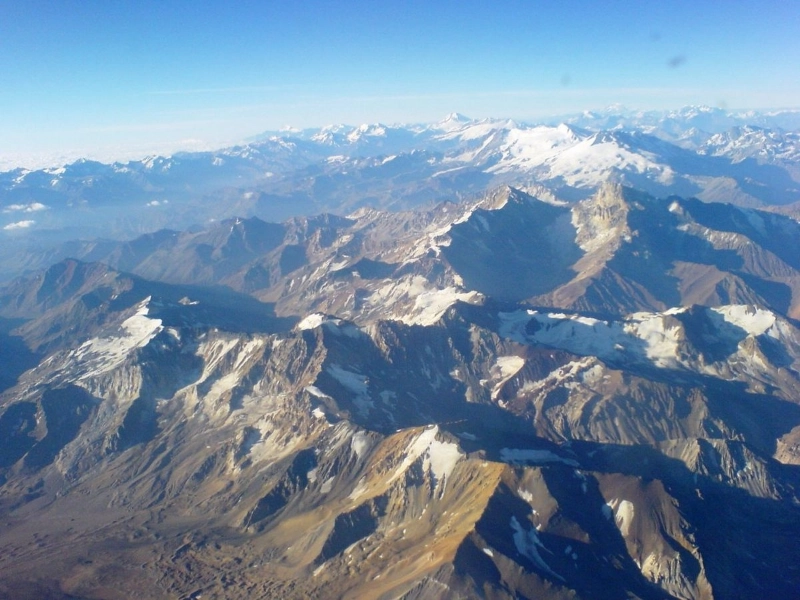When most people think of mountaineering, images of snowcapped peaks in the Alps, Himalayas or Rockies come to mind. It’s a sport that combines challenge with immense fun and adventure. It strengthens muscles and bones, as well as forcing the body to adapt to oxygen deprivation. It can also boost confidence and foster deep friendships.
 The Alps are one of the most popular mountaineering areas in the world, and it’s no wonder: they’re home to some of the most challenging summits on earth. The Alps were the first place where mountaineering was developed, and even today, many mountaineers find their feet on these iconic trails.
The mountains of the Alps are a treasure trove of trails for both beginner and advanced climbers. For example, the Signalkuppe in the Monte Rosa massif offers routes that are both accessible and difficult, and is an ideal place for a mountaineering expedition.
For more advanced mountaineers, the Matterhorn is a must-climb. This iconic peak, which sits on the border between Switzerland and Italy, is one of the most famous four-thousanders in the world, and it has a number of challenging climbing routes to choose from. The Breithorn, which is located in the Pennine Alps and straddles the Swiss-Italian border, is another popular four-thousander to climb, and is often climbed as a warm-up for climbing the Matterhorn.
The Alps are one of the most popular mountaineering areas in the world, and it’s no wonder: they’re home to some of the most challenging summits on earth. The Alps were the first place where mountaineering was developed, and even today, many mountaineers find their feet on these iconic trails.
The mountains of the Alps are a treasure trove of trails for both beginner and advanced climbers. For example, the Signalkuppe in the Monte Rosa massif offers routes that are both accessible and difficult, and is an ideal place for a mountaineering expedition.
For more advanced mountaineers, the Matterhorn is a must-climb. This iconic peak, which sits on the border between Switzerland and Italy, is one of the most famous four-thousanders in the world, and it has a number of challenging climbing routes to choose from. The Breithorn, which is located in the Pennine Alps and straddles the Swiss-Italian border, is another popular four-thousander to climb, and is often climbed as a warm-up for climbing the Matterhorn.
 The Himalayas are one of the largest mountain ranges in the world. It’s also a popular destination for mountaineers looking for more of a challenge than the Alps. These mountains are steep, rugged and require climbing skills like ice axes and crampons to get to the summit.
There’s no mountaineering destination more famous than Mt. Everest in the Himalayas. This iconic snow-clad natural figurine is the dream goal of every climber.
The Khumbu region in Nepal is another top choice for climbing enthusiasts who want to trek and scale high-altitude peaks. Sir Edmund Hillary and Tenzing Norgay set a trend when they climbed Island Peak before and after their successful ascent of Mt. Everest back in 1953. The peak is known for its beautiful structure and resembles an island in the sea of snow. It is a great choice for those at the inception of their alpine careers. This 6,000-meter peak is located in the Sagarmatha National Park in eastern Nepal.
The Himalayas are one of the largest mountain ranges in the world. It’s also a popular destination for mountaineers looking for more of a challenge than the Alps. These mountains are steep, rugged and require climbing skills like ice axes and crampons to get to the summit.
There’s no mountaineering destination more famous than Mt. Everest in the Himalayas. This iconic snow-clad natural figurine is the dream goal of every climber.
The Khumbu region in Nepal is another top choice for climbing enthusiasts who want to trek and scale high-altitude peaks. Sir Edmund Hillary and Tenzing Norgay set a trend when they climbed Island Peak before and after their successful ascent of Mt. Everest back in 1953. The peak is known for its beautiful structure and resembles an island in the sea of snow. It is a great choice for those at the inception of their alpine careers. This 6,000-meter peak is located in the Sagarmatha National Park in eastern Nepal.
 Spreading across Colorado, Utah, Idaho and Wyoming, the mighty Rocky Mountains have something to offer mountaineers of all experience levels. Whether you’re looking for a rock climbing intro course or a full-on summit adventure, professional guides tailor your trip to suit your experience level and goals.
The Rocky Mountain National Park’s soaring peaks and granite rock formations are an attraction for local climbers and visitors from around the world. The north-central part of the park boasts a number of fourteeners that are a challenge to summit, including Mount Elbert – Colorado’s highest peak. Its standard route is short and relatively easy compared to its sister mountain, the Maroon Bells, but it’s still a formidable peak.
The soaring peaks of the Yukon’s Kluane National Park are also home to some impressive climbs, including the second-highest peak in North America, Mount Logan. It’s not an easy mountain to conquer, but the scenery from its summit is worth the effort!
Spreading across Colorado, Utah, Idaho and Wyoming, the mighty Rocky Mountains have something to offer mountaineers of all experience levels. Whether you’re looking for a rock climbing intro course or a full-on summit adventure, professional guides tailor your trip to suit your experience level and goals.
The Rocky Mountain National Park’s soaring peaks and granite rock formations are an attraction for local climbers and visitors from around the world. The north-central part of the park boasts a number of fourteeners that are a challenge to summit, including Mount Elbert – Colorado’s highest peak. Its standard route is short and relatively easy compared to its sister mountain, the Maroon Bells, but it’s still a formidable peak.
The soaring peaks of the Yukon’s Kluane National Park are also home to some impressive climbs, including the second-highest peak in North America, Mount Logan. It’s not an easy mountain to conquer, but the scenery from its summit is worth the effort!
 The Andes boast plenty of options for climbers at every level. Modest peaks across Ecuador and Argentina make perfect climbing spots for first-time mountaineers looking to learn the ropes, while intermediate-level ascents on ice and rock offer the ideal preparation for more challenging climbs in the Alps or Alaska.
Named after Peru’s national distilled spirit, Nevado Pisco is a popular climbing destination among the snow-capped Cordillera Blanca peaks. The massif is divided into the western Pico Oeste and eastern Pico Este, and climbers can take on either summit in a single expedition.
A dormant stratovolcano, Yerupaja is one of Peru’s highest mountains. Its impressive summit stands at an altitude of over 6,600 meters, and it offers a challenge for any mountaineer. Its route is renowned for its difficult and technical nature, as well as being one of the hardest to complete on the Seven Summits list without supplemental oxygen. A favourite of renowned mountaineer Reinhold Messner, the peak is also known for being the first climbed in winter.
The Andes boast plenty of options for climbers at every level. Modest peaks across Ecuador and Argentina make perfect climbing spots for first-time mountaineers looking to learn the ropes, while intermediate-level ascents on ice and rock offer the ideal preparation for more challenging climbs in the Alps or Alaska.
Named after Peru’s national distilled spirit, Nevado Pisco is a popular climbing destination among the snow-capped Cordillera Blanca peaks. The massif is divided into the western Pico Oeste and eastern Pico Este, and climbers can take on either summit in a single expedition.
A dormant stratovolcano, Yerupaja is one of Peru’s highest mountains. Its impressive summit stands at an altitude of over 6,600 meters, and it offers a challenge for any mountaineer. Its route is renowned for its difficult and technical nature, as well as being one of the hardest to complete on the Seven Summits list without supplemental oxygen. A favourite of renowned mountaineer Reinhold Messner, the peak is also known for being the first climbed in winter.